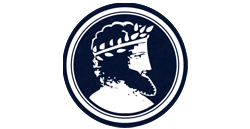Despite his stunning victory, polls show that French voters are already turning against their youngest leader since Napoleon Bonaparte. What are his prospects?
The brilliant Robert Dujarric, Director, Institute of Contemporary Asian Studies at Temple University Japan Campus, will help us answer these questions. Robert is bilingual in English and French and a student of politics in Europe, Japan and the US. He has an unusual ability to compare several countries in depth, adding a keen appreciation of their historical and economic development.
When: October 12, 7-830pm (845pm hard stop)
Where: Vega Global 5F Nihonbashihoncho Square,
1 Chome-2-6 Nihonbashihoncho, Chuo-ku,
Tokyo-to, 103-0023 Japan
Cost: 3,000 Yen. Please bring cash, a receipt will be provided.
In the second round of French presidential election on May 7, voters could choose between a far-right politician, Marine Le Pen and the eventual winner, a neo-liberal with no parliamentary pedigree, Emmanuel Macron.
Many might argue such a choice is not a choice. Le Pen was deservedly crushed with Macron, to all intents and purposes, being unopposed.
With only 26% of voters taking part in the final round, one must question a system which provides such a “non choice” to its citizens. Especially when the winner is so shot through with contradictions and ironies.
The youngest president in European history, Macron looks the part. His gleaming teeth, smooth skin and exquisite suits make both former President Hollande and his rival Marine Le Pen look like a pair of tragic, middle-aged washouts.
Macron turned his lack of experience into a strength, claiming to identify anti-establishment disgust as a strong voting motivation. But in the first of many ironies around Macron, he is an establishment insider by breeding and vocation.
Is Macron the man who will heal the wounds of a socially divided, economically stagnant, and terrorized France?
Or is he the symptom of a political and electoral system which is not able to respond flexibly and effectively to the changing wishes of a new type of voter?
Consider the irony of Macron’s party which calls itself a “movement”, winning an absolute majority in the legislative election, but with 60% of the electorate not bothering to vote.
No wonder hard-left French politician Jean Luc Melenchon described French non-voting during the legislative election as a “civic strike action”. An aide to Macron commented: “People don’t feel represented by their politicians. It’s not healthy”.
Indeed.
A good businessman knows he has to choose the right product mix to seduce his customers. But as a caste, are France’s politicians failing to put together a programme the French find appealing?
The French certainly know what they do NOT like. France’s traditional parties have been gutted. The once all-conquering “Parti Socialiste” collapsed, pulled down like one of those statues of Saddam Hussein in post-liberation Iraq. The powerful leader of the traditional right, Francois Fillon, seemed on the verge of sweeping into power on the back of former President Hollande’s failures. But Fillon was eliminated by one of the most humiliating media houndings in recent French history. The hard left did surprisingly well in the legislative elections, further complicating the picture.
What hints does this constellation give President Macron’s neo-liberal plan to “revolutionize” the French economy? Reflecting voter confusion, he is dithering. One of his first acts was to nationalize the French shipping industry – not a move out of the neoliberal handbook.
As for his signature Employment Law, it should help “liberate labour” by removing governmental micro-managing of HR issues, halving payouts for layoffs, and giving small firms more freedom to negotiate directly with their employees. So far the signs are good. But his ambitions are to reform the entirety of France’s post-war social pact.
What are the chances of this unusual creature succeeding? Robert Dujarric will help us find out.

